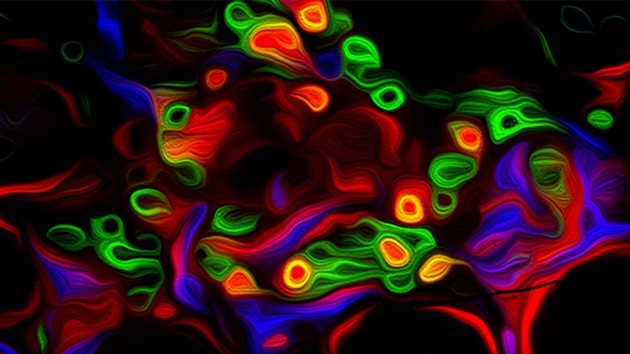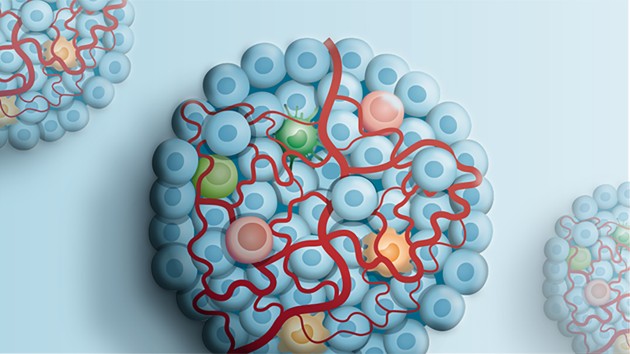Collections
Filters
-
Collection Type
-
-
Collection |
 Innovations in Stem Cell Biology 2023
Innovations in Stem Cell Biology 2023
Stem cell models of development, regeneration, and disease are quickly advancing. New technologies and concepts are continuously combined with existing knowledge to create more realistic systems to improve our understanding of these intricate processes. In this collection, we highlight papers published in 2022-2023 across Nature Portfolio journals on topics including embryonic development and stem cells, reproductive biology, synthetic tissues and embryo models, clinical and translational research and tissue stem cells.
Image: Jean-Baptiste Sibarita, Virgile Viasnoff, and Anne Beghin -
Collection |
 Genome Editing
Genome Editing
This Collection provides an overview of current progress in developing targeted genome editing technologies, including a selection of protocols for using and adapting these tools in your own lab.
Image: LuckyStep48 / Alamy Stock Vector -
Collection |
Cell cycle
One of the fundamental biological processes in life is the cell cycle leading from DNA replication to cell division. While it has been studied for decades and our knowledge has matured, sophisticated experimental approaches have rejuvenated the field. In addition, cell cycle regulators have emerged as cancer therapy targets. This collection showcases ground-breaking cell cycle papers and reviews, ranging from basic discoveries to clinical applications.
Image: Nicolas Plachta, NCB (2022) -
Collection |
 Methods for studying noncoding RNA
Methods for studying noncoding RNA
Research interest is growing in profiling noncoding RNAs and understanding their biological functions in health and disease contexts.
Image: Jeren (France) / Getty Images -
Collection |
 Nobel Prize in Physiology or Medicine 2022
Nobel Prize in Physiology or Medicine 2022
The 2022 Nobel Prize in Physiology or Medicine was awarded to Svante Pääbo "for his discoveries concerning the genomes of extinct hominins and human evolution".
Image: Springer Nature/The Nobel Foundation/Imagesource -
Collection |
 Celebrating Mendel
Celebrating Mendel
Gregor Johann Mendel, considered by many the ‘father of modern genetics’, was born 200 years ago, on 20 July 1822.
Image: P. Morgan, Springer Nature -
Collection |
 Stem Cells: from Single Cells to the Clinic
Stem Cells: from Single Cells to the Clinic
Recent technological progress has facilitated the study of how embryos develop, how embryonic cells transition between different states, how adult stem cells are maintained and differentiate, at unprecedented resolution.
Image: Deepti L Kumar and Tony DeFalco -
Collection |
 Nobel Prize in Physiology or Medicine 2020
Nobel Prize in Physiology or Medicine 2020
This collection of research, review and comment from Nature Research celebrates the 2020 Nobel Prize in Physiology or Medicine awarded to Harvey J. Alter, Michael Houghton and Charles M. Rice "for the discovery of hepatitis C virus".
Image: Springer Nature/The Nobel Foundation/Imagesource -
Collection |
 Stem cells from development to the clinic
Stem cells from development to the clinic
New technologies to study stem cells have increased our knowledge about their physiological roles and contributions to development, ageing, regeneration and disease. This collection showcases research articles, reviews and protocols from across the Nature journals to highlight the striking advances made in basic and translational stem cell research.
Image: Benedetta Artegiani and Delilah Hendriks, Hubrecht Institute, Utrecht, The Netherlands. -
Collection |
 The 3D genome
The 3D genome
This collection includes recent articles from across the Nature group of journals and showcases both the latest advances in the methodologies used to study genome organization, and our recent understanding of how genome organization and nuclear architecture regulate gene expression, cell fate and cell function in physiology and disease.
Image: V. Summersby -
Collection |
 Rare Cancers Collection
Rare Cancers Collection
This collection from the cancer editorial community at Nature Research journals focuses on highlighting work on rare cancers, from preclinical basic research to translational and clinical research.
Image: Simon Bradbrook/Springer Nature Limited

 Diversity in Human Genetics
Diversity in Human Genetics